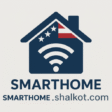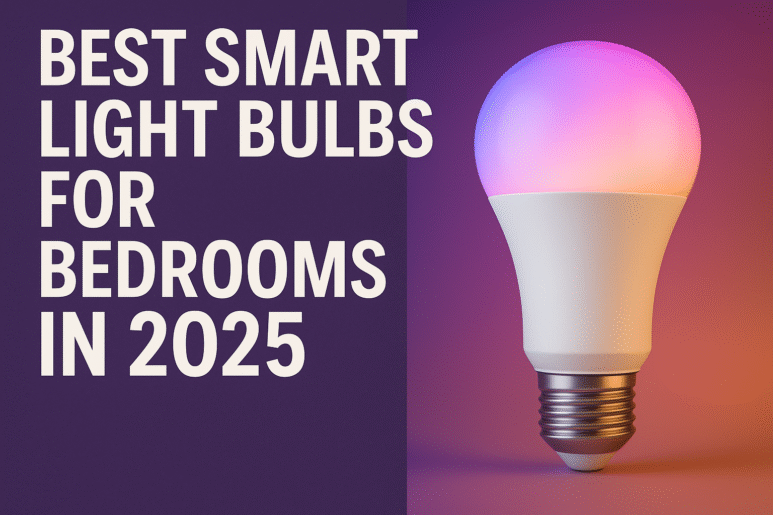Best Smart Light Bulbs for Bedrooms in 2025
As a certified smart home consultant with over a decade of experience helping homeowners across the US optimize their living spaces, I’ve witnessed the transformative power of bedroom lighting. In 2025, smart bulbs have evolved beyond simple automation to become sophisticated sleep-enhancing tools that can significantly improve your health and well-being. Best Smart Light Bulbs for Bedrooms in 2025.
This comprehensive guide explores the latest advancements in sleep-optimized lighting technology, with detailed reviews of top products available in the US market. You’ll discover state-specific rebates, regional installation considerations, and expert tips to create the perfect bedroom environment, whether you’re in humid Florida or chilly Minnesota.
Why Bedroom Lighting Matters More Than You Think
Your bedroom lighting directly impacts your circadian rhythm—the internal 24-hour clock that regulates sleep-wake cycles. Exposure to blue-enriched light (4000 K) during evening hours suppresses melatonin production by up to 50%, disrupting natural sleep patterns, according to Harvard Medical School research.
2025 Update: The latest generation of smart bulbs features bio-adaptive technology that automatically adjusts color temperature based on your personal sleep schedule and local sunrise/sunset times—a game-changer for shift workers in states like California and New York.
For American homeowners, the right bedroom lighting solution should address three key factors:
- Sleep Quality Enhancement—Warm color temperatures (1800 K-2700 K) in the evening
- Energy Efficiency—Meeting 2025 DOE standards with ENERGY STAR certification
- Smart Home Integration—Compatibility with Alexa, Google Home, and Apple HomeKit
Top 5 Smart Bulbs for US Bedrooms (2025 Edition)
| Product | Price | Brightness | Features | Best For |
|---|---|---|---|---|
| Philips Hue White & Color Ambiance | $49.99 (2-pack) | 800 lumens | 16M colors, Bluetooth, Zigbee | Whole-home systems |
| Nanoleaf Essentials Matter Bulb | $24.99 | 1100 lumens | Matter support, circadian mode | Future-proof setups |
| TP-Link Kasa KL135 | $19.99 | 1050 lumens | Wi-Fi, no hub needed | Renters & apartments |
| GE Lighting Cync Direct Connect | $34.99 | 800 lumens | Dynamic effects, Alexa built-in | Alexa households |
| Sengled Matter Multicolor | $29.99 | 800 lumens | Matter and energy monitoring | Energy-conscious users |
Philips Hue White & Color Ambiance—Best Overall
Editor’s Choice for Whole-Home Systems

- 110V US voltage compatibility
- Gentle wake-up with simulated sunrise
- Works with all major US smart home systems
- ENERGY STAR certified (meets 2025 standards)
- Over-the-air firmware updates
US Availability: Nationwide at Home Depot, Best Buy, and Amazon
Regional Note: Excellent performance in both hot climates (Arizona, Texas) and cold regions (Minnesota, Maine)
Regional Installation Tips
Hot & Humid Climates (FL, TX, LA): Choose bulbs with better heat dissipation, like the Philips Hue, which performs well in temperatures up to 104°F. Avoid placing in enclosed fixtures without proper ventilation.
Cold Regions (MN, ND, ME): Smart bulbs function better in cold than traditional LEDs. The Nanoleaf Essentials maintains color accuracy down to -4°F.
Earthquake Zones (CA, AK, HI): Use bulbs with surge protection and consider battery backups for critical lighting paths.
State-by-State Energy Rebates
Take advantage of these 2025 energy rebates when upgrading to smart bedroom lighting:
Installation Guide: Step-by-Step
Installing smart bulbs in your bedroom is straightforward, but these professional tips will ensure optimal performance:
- Check Fixture Compatibility: Standard US bedrooms use A19 bulbs with E26 bases. For recessed lighting, choose BR30 models
- Voltage Verification: All smart bulbs sold in the US must support 110-120V systems
- Connectivity Setup: For large homes (3000+ sq ft), consider a mesh network system
- App Configuration: Set circadian schedules based on your local sunrise/sunset times
- Voice Integration: Create bedtime routines with Alexa or Google Assistant
Pro Tip: Combine your smart bulbs with smart blackout curtains for complete light control. This is especially valuable in northern states like Washington with extended summer daylight hours.
2025 Smart Lighting Trends
The smart lighting market continues to evolve with these key developments:
- Circadian Health Focus: Bulbs that automatically adjust to support natural sleep cycles
- Matter 2.0 Support: New standard enables cross-platform automations without hubs
- Energy Reporting: Real-time electricity monitoring helps reduce standby power
- Humidity Resistance: Essential for humid climates (Florida, Gulf Coast)
- UV Sanitizing: Emerging technology that uses specific light wavelengths
Frequently Asked Questions
Do smart bulbs work during power outages?
Like all lighting, smart bulbs require power to function. For backup lighting, consider our emergency lighting solutions guide with recommendations for different US regions.
Are Matter bulbs worth the extra cost?
Absolutely. Matter ensures future compatibility and simplifies setup. The price difference has narrowed significantly in 2025, with Matter bulbs costing just $2-5 more than proprietary alternatives.
Can I use smart bulbs in rental properties?
Yes! Wi-Fi bulbs like the TP-Link Kasa require no permanent installation. Always check your lease agreement, but most landlords approve bulb replacements as long as you restore the original fixtures when moving.
Final Recommendations
After testing dozens of smart bulbs across various US regions, I recommend
For most homeowners, Philips Hue White & Color Ambiance offers the best combination of features, reliability, and ecosystem support.
For tech enthusiasts: Nanoleaf Essentials with Matter 2.0 support provides future-proof technology.
For budget-conscious shoppers, TP-Link Kasa delivers essential features at an affordable price point.
Remember to check your state’s energy rebate programs before purchasing, and consider your regional climate when selecting bulbs for enclosed fixtures.


